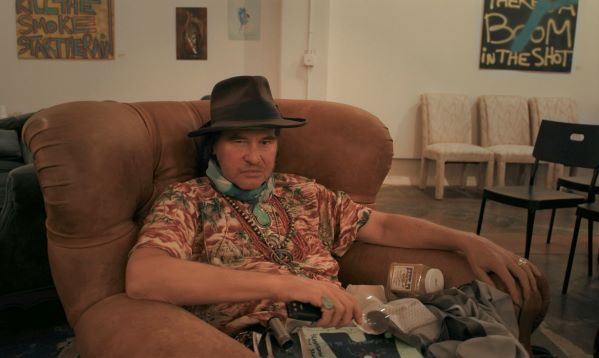
Val Kilmer has, in his own words, saved everything. The extent to which he has documented his life both on set and offstage is staggering. Early on, he takes us into a giant warehouse containing tapes and records. He explains that he was the first person he knew to own a video camera, and he has been making home movies as well as recording his friends, family, and collaborators for his whole life. These video snippets make up a significant bulk of this new documentary, and are its strongest assets.
Kilmer, a survivor of throat cancer, can no longer speak, and this film is his attempt to tell the story of his life. In addition to the clips from his enormous collection, there is also narration (read by his son, Jack), recent and older interview footage, and excerpts from his many performances. The film moves chronologically and quickly through his life and career, with an emphasis on Kilmer’s reflections. Much of it is full of heart. Kilmer wants us to see, for instance, how much he loves his children; the sadness of losing his brother with whom he made home movies and makeshift plays; the additional sadness of his trip to attend to his mother’s passing. He also makes it clear that he wants us to see his passion for acting, his thoughts about the craft, and his ability to lose himself in it, even if his comments on the subject are brief.
Val is crushingly sad for a variety of reasons, some of which are completely beyond its subject’s control. First of all, he uses a breathalyzer to speak, though Kilmer insists he sounds much worse than he feels. In his case, his illness derailed his one-man show as Mark Twain, which he had been writing for years and had intended as a sort of comeback (the clips we see contain delighted laughs from the audience). Also, his reflections on his life, and on acting, do not give the impression that he is the bearer of wisdom and experience he intends to be. Many of them are quite banal. There is, for instance, the classic quote from Hamlet about holding a mirror up to nature, and Kilmer, predictably, states that this is the actor’s task.
Most of all, though Kilmer insists that he’s had a beautiful and lucky life that he wants to share, what we see most clearly is that his career has fallen short of his ambitions. This is not a point he avoids per se. In one interview at Julliard, he mentions that he hasn’t really gotten to do the sort of acting that he really wanted to. In short, he had Marlon Brando–esque aspirations, wanted to work with Stanley Kubrick and Martin Scorsese, yet he was frequently cast in fluff (Top Gun, Batman Forever, Willow). While many of these films were hits, they gave him a kind of stardom that he had not initially sought and, we sense, failed to satisfy his creative drive.
Yet there is more to the story. He details how, in an early Off-Broadway play (Slab Boys), he was forced to concede the lead to Kevin Bacon and left playing the second lead. Then, he had to give up that role because Sean Penn was available, and so he played the character who was the butt of every joke. He eagerly accepted the role of Batman only to discover that his costume was so uncomfortable it made it impossible for him to act convincingly, to move without extreme difficulty, and to hear what anyone was saying. His collaborators eventually stopped talking to him, and he watched, miserably, while Nicole Kidman, Tommy Lee Jones, and Jim Carrey delivered their unhinged, campy performances.
The Island of Dr. Moreau, a project he approached with extra excitement since it guaranteed an opportunity to work with Brando, was a film so riddled with catastrophes that it delivered none of the satisfaction he hoped it would and also prompted him to fight with its director, John Frankenheimer. In addition, he also received divorce papers from his wife, Joanne Whalley, while on the set. By the 2000s, he had a reputation for difficulty, and he fell out of the spotlight.
Indeed, though we see Kilmer signing autographs for eager fans, showing up to an adoring crowd for an outdoor screening of Tombstone, and diligently studying Jim Morrison’s body language for The Doors, Val serves in many ways as a reminder that even supposedly lucky careers can be blighted with disappointment.
This is not to say that the film does not yield its pleasures, most of which are found in the footage Kilmer has saved. I did sometimes wonder if Kilmer was driving everyone around him insane, and also whether it was wise or ethical to include an excerpt from a mid- or post-divorce argument with Whalley (Kilmer’s voice is the only one we hear). Nevertheless, it is fun to see footage of stars like Bacon, Penn, Kelly McGillis, and Tom Cruise backstage and off camera in moments of downtime, sometimes acting very silly. Kilmer often comes off as a complete goofball.
Best are the excerpts from the home movies and plays Kilmer made with his brothers when he was a kid, particularly one in which he is playing what looks like a mad scientist, wearing a floppy white wig and speaking in a funny voice. It is refreshing to see what pure fun this child seems to be having and also how odd it is to associate this little boy with the actor in Top Gun and The Doors. It struck me, watching the excerpts from his show as an aging Mark Twain, that his performance, one that did not require him to be smooth and handsome, was the closest he’d come to the freedom of the little boy making movies with his siblings.

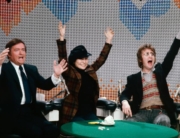
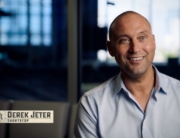
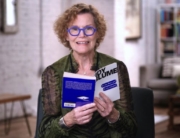
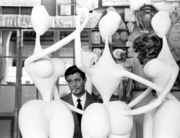
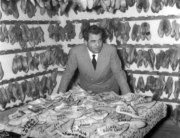
Leave A Comment